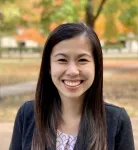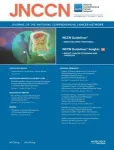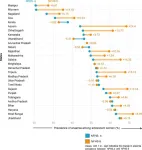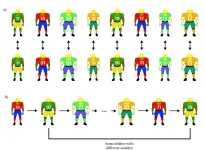“Our study found significant language-based disparities in patients’ access to cancer care well before they are seen by a physician,” said lead researcher Debbie W. Chen, MD, University of Michigan. “If patients with cancer cannot access information on where to obtain the appropriate cancer care, what other critical information and services are they not able to access in our healthcare system?”
Dr. Chen continued, referencing a 2005 audit study in which simulated Spanish-speaking callers contacted the hospital general information line of New York City hospitals and requested the telephone number for one of the hospital’s out-patient clinics[1]: “Even though our study takes place 16 years later, during a time when more than 25 million individuals with limited English proficiency live in the United States, our study found even lower success rates for non-English-speaking persons seeking to access cancer care services. Most of the barriers that the simulated non-English-speaking callers encountered were systems-level issues, including being told ‘no’ or being hung up on by hospital staff, or being disconnected because the hospital’s automated message required input but did not provide language-concordant instructions, plus issues at the level of Interpreter Services.”
The simulated calls were made to a random selection of 144 hospitals evenly distributed across 12 demographically diverse U.S. states, including California, Florida, New York, Texas, Arizona, Illinois, Massachusetts, New Jersey, Michigan, Missouri, Oregon, and Pennsylvania. The calls were made Monday through Friday between 8:00am and 5:00pm local time, between November 8, 2021 and June 23, 2022. A total of 1,296 calls were completed; 432 in each language. Overall, 53% resulted in callers being provided with next steps to access cancer care. However, the Mandarin-speaking callers received that information only 28% of the time; Spanish-speakers were slightly higher at 38%, while English-speakers were connected to next steps 94% of the time. The researchers anticipate that patients who speak other, less commonly spoken, non-English languages may face even greater barriers to care.
Dr. Chen, et. al., proposed several potential interventions based on the different reasons for incomplete calls. They suggest that automatic messaging should be sure to include instructions for accessing the message in different languages and should default to a live person instead of disconnecting in instances where no input is made. They also recommend that general information personnel remain on the line when connecting callers to a language interpreter in order to help provide the sought-after information through the translator, who may not be able to answer questions about care on their own.
“The results of this important study highlight what we see every day on the ground level,” commented Darcie Green, Executive Director, Latinas Contra Cancer, who was not involved in this research. “Spanish-speaking patients, as well as others who are not English-proficient, face preventable barriers in access to care starting at one of the most basic expectations we have when calling our health care provider—the ability to call in for an appointment or advice. This health inequity from the very start can lead to late detection, erosion of trust, disengagement from the healthcare system, and many other adverse health outcomes that serve to only deepen cancer care disparities.”
Green will be among the speakers at an upcoming NCCN Oncology Policy Summit taking place in Washington D.C. on Tuesday, September 12 on Measuring and Addressing Health-Related Social Needs in Cancer. She continued: “Additionally, as we lean into greater investment in community health workers and patient navigation to reduce disparities in detection, treatment, and survivorship, it is crucial that the patients who need these services the most do not face unnecessary barriers to accessing them. This study should serve as an affirming but urgent call to action for accountability and to support and invest in the strategies and infrastructure needed to eliminate language-based health inequity in access to care.”
To read the entire study, visit JNCCN.org. Complimentary access to “Hidden Disparities: How Language Influences Patients’ Access to Cancer Care” is available until December 10, 2023.
# # #
About JNCCN—Journal of the National Comprehensive Cancer Network
More than 25,000 oncologists and other cancer care professionals across the United States read JNCCN—Journal of the National Comprehensive Cancer Network. This peer-reviewed, indexed medical journal provides the latest information about innovation in translational medicine, and scientific studies related to oncology health services research, including quality care and value, bioethics, comparative and cost effectiveness, public policy, and interventional research on supportive care and survivorship. JNCCN features updates on the NCCN Clinical Practice Guidelines in Oncology (NCCN Guidelines®), review articles elaborating on guidelines recommendations, health services research, and case reports highlighting molecular insights in patient care. JNCCN is published by Harborside/BroadcastMed. Visit JNCCN.org. To inquire if you are eligible for a FREE subscription to JNCCN, visit NCCN.org/jnccn/subscribe. Follow JNCCN on Twitter @JNCCN.
About the National Comprehensive Cancer Network
The National Comprehensive Cancer Network® (NCCN®) is a not-for-profit alliance of leading cancer centers devoted to patient care, research, and education. NCCN is dedicated to improving and facilitating quality, effective, equitable, and accessible cancer care so all patients can live better lives. The NCCN Clinical Practice Guidelines in Oncology (NCCN Guidelines®) provide transparent, evidence-based, expert consensus recommendations for cancer treatment, prevention, and supportive services; they are the recognized standard for clinical direction and policy in cancer management and the most thorough and frequently-updated clinical practice guidelines available in any area of medicine. The NCCN Guidelines for Patients® provide expert cancer treatment information to inform and empower patients and caregivers, through support from the NCCN Foundation®. NCCN also advances continuing education, global initiatives, policy, and research collaboration and publication in oncology. Visit NCCN.org for more information.
[1] Getting in the Door: Language Barriers to Health Services at New York City’s Hospitals. Available at: https://comptroller.nyc.gov/wp-content/uploads/documents/jan10-05_geting-in-the-door.pdf
END







